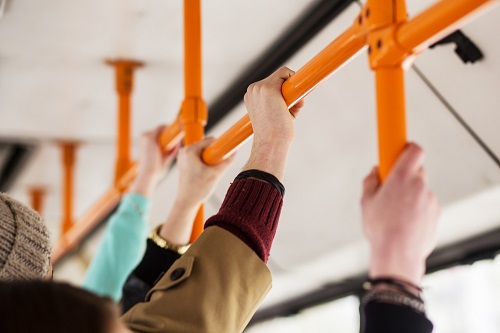Volunteers needed to test health benefits of bus travel

Can regularly catching the bus improve your health?
This is one of the questions researchers will be examining in a new University of Tasmania study focussed on people’s transport habits.
Lead researcher Dr Verity Cleland, from the Menzies Institute for Medical Research, said the world-first study aimed to determine whether an incentives scheme would lead to more passengers on buses and ultimately improve community health.
“We expect that more bus travel will increase incidental physical activity through walking trips to and from bus stops and less reliance on cars for short trips,” Dr Cleland said.
“Those small walking trips add up and contribute to meeting the recommended 150 minutes/week of physical activity, which can have important health benefits.”
Dr Cleland said while physical activity was a major protective factor against heart disease, type 2 diabetes and obesity, greater bus use could also have important social, environmental and economic benefits.
“Buses are considerably cheaper for individuals than cars, promote social interaction, increase community engagement, reduce greenhouse gas emissions and can stimulate local economies,” she said.
The study is being undertaken with Metro Tasmania, the Tasmanian Department of Health/State Government and the Local Government Association of Tasmania.
Half of the study’s participants will receive Metro Greencard credit for meeting weekly bus trip targets, over a four-month period.
All study participants will each receive up to $30 in Metro Greencard credit as a thank you for participating. They will also be entitled to three free Menzies health checks and a free smartphone app specially designed to help keep track of travel behaviour.
The study is open to people living in the greater Hobart region who are aged 18 or older and who currently catch the bus twice a week or less.
For more information on the study, call (03) 6226 4290 or go to: https://tinyurl.com/trips4health